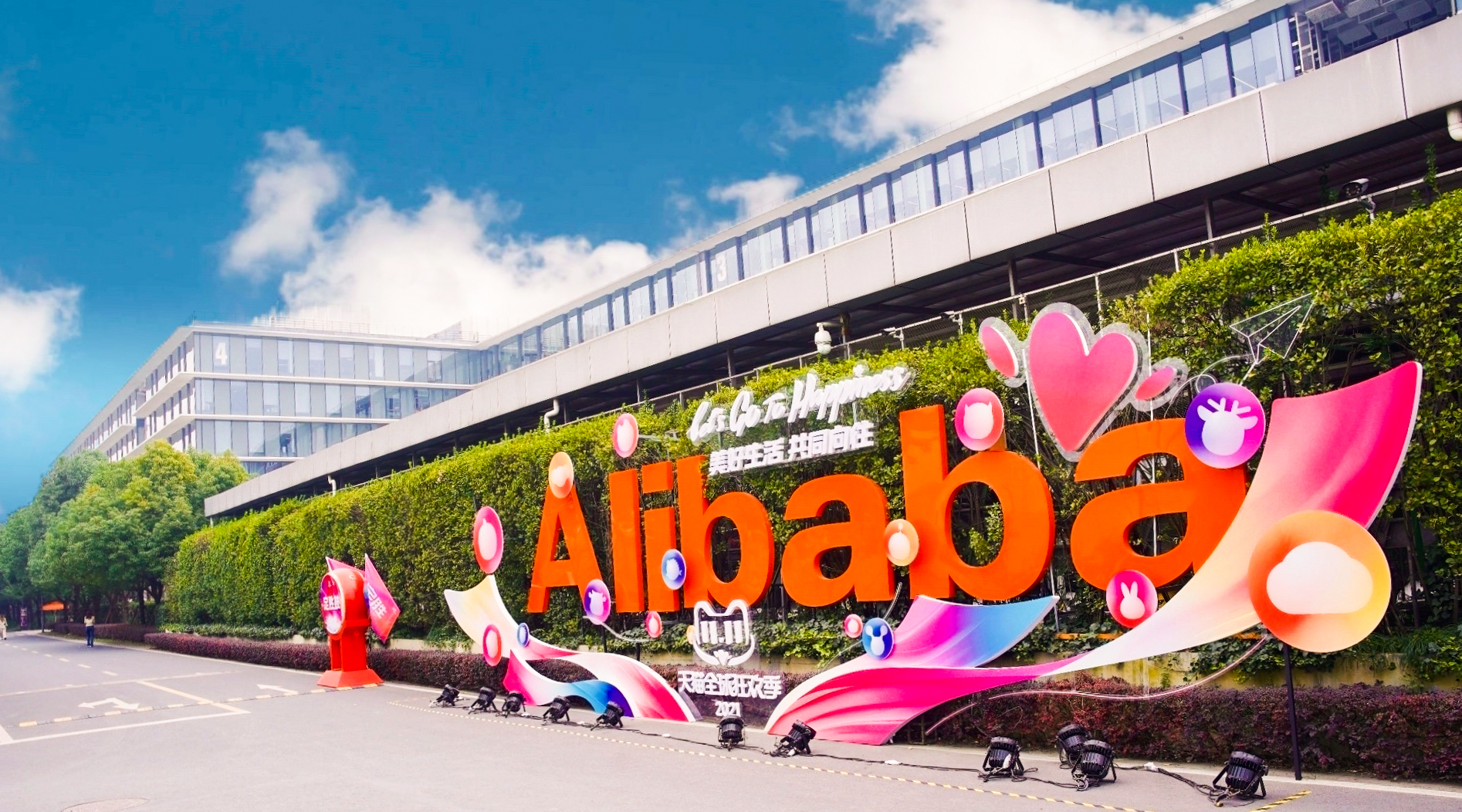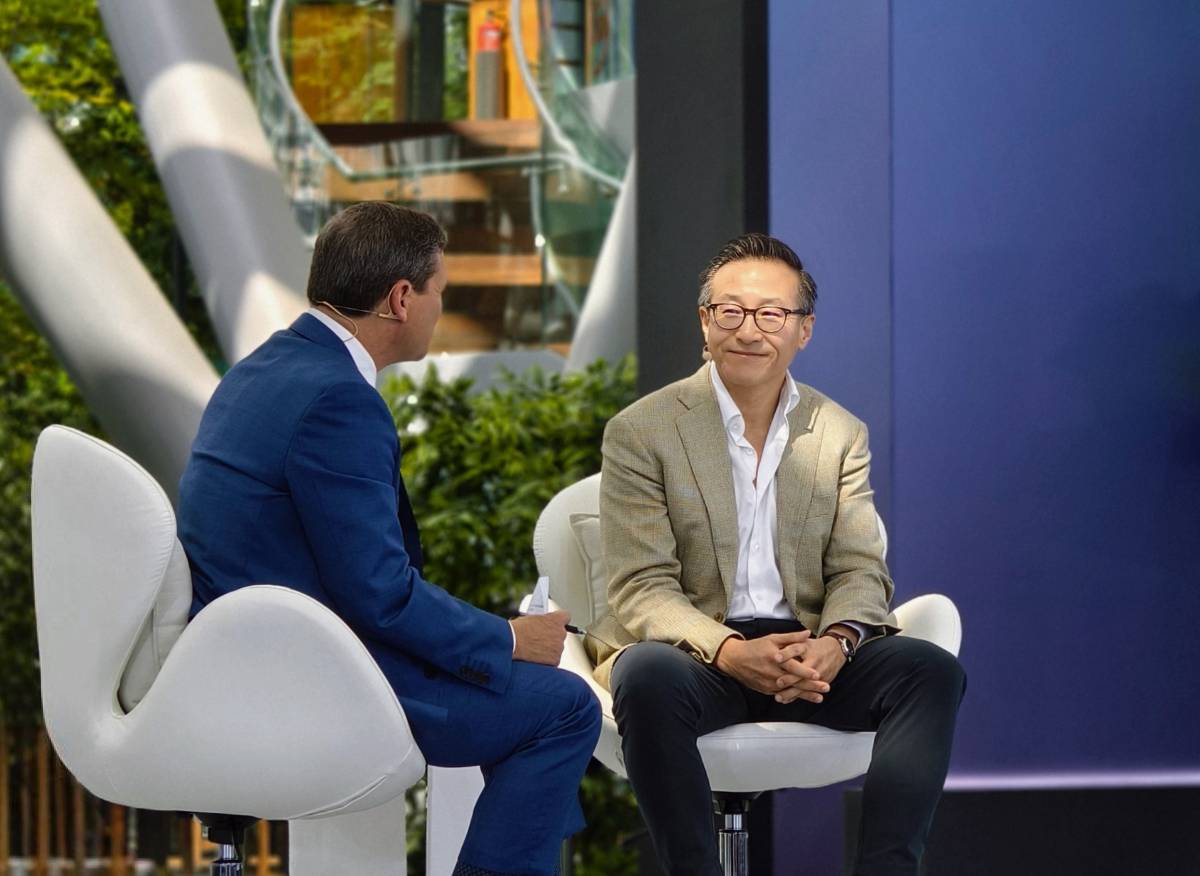
The Hangzhou campus of Alibaba Group, which released its second quarter earnings this week. Photo credit: Alibaba Group
This week, Alibaba Group released its second-quarter earnings and said it had ramped up seed investments in fast-growing businesses while the number of active annual users rose to 1.24 billion.
In other news, education startup PraxiLabs bagged the top prize at the third-annual Africa’s Business Heroes competition launched by the Jack Ma Foundation to recognize and support innovative businesses across the continent.
Alibaba intelligent assistant M6 has shown itself capable of everything from designing T-shirts to making business decisions, according to computing platform head Dr. Yangqing Jia, while the company pulled off the 11.11 Global Shopping Festival earlier this month using just half the computing resources of previous years.
Alibaba Q2 Revenue Up 29% YoY; Invests in Future Growth
Alibaba’s revenue for its quarter ending September 30 climbed 29% year-over-year to RMB200.7 billion ($31.1 billion), driven higher mainly by its China commerce retail business and cloud computing.
The company’s number of annual active consumers expanded to about 1.24 billion for the 12 months ended September 30, adding roughly 62 million from the 12 months ended June 30 — right on track with a longer-term target of serving 2 billion consumers.
Alibaba continues to invest in domestic consumption, globalization and cloud computing. It ramped up seed investments in businesses such as bargain app Taobao Deals and Singapore-based e-commerce platform Lazada.
“During this quarter, our continued investments in key strategic areas have resulted in robust growth for these young businesses,” said Maggie Wu, Chief Financial Officer of Alibaba Group.
Read more insights about the earnings result here
AliViews: Alibaba’s CEO Daniel Zhang on Q2 Earnings and Investment Strategy
Alibaba Chief Executive Officer and Chairman Daniel Zhang spoke with investors, analysts and the media this week to comment on the company’s second-quarter earnings.
“In the past quarter, Alibaba continued to firmly invest into our three strategic pillars of domestic consumption, globalization, cloud computing and data intelligence. We believe this will establish solid foundations for our long-term goal of sustainable growth in the future,” he said during the call.
“In the September quarter, China’s GDP and consumption continued to grow but slower than the previous quarters. Overall retail sales for the quarter increased 5% year-over-year. Online retail of physical goods rose 8% year-over-year compared to 17% during the same period last year. Offline retail has only just returned to the same level as two years ago.”
Read Zhang’s full remarks here
Egyptian Education Startup Wins Africa’s Business Heroes Pitch Competition
Egyptian education startup PraxiLabs took top prize in the third-annual Africa’s Business Heroes competition launched by the Jack Ma Foundation to support entrepreneurship across the continent.
The event received around 12,000 applications this year, and it took 230 judges more than seven months to sift through the entries, conduct research and select 10 finalists, including the winning bid from PraxiLabs founder Khadija Mohamed Elbedweihy.
“I hope that this win inspires many young Africans to believe that we have what it takes to make an impact where we are,” Elbedweihy, who took home $300,000 to fund her virtual 3D science platform, said in a statement earlier this week.
There is no shortage of promising entrepreneurs among Africa’s 54 countries; learn more about the competition and its entrants here
Can AI Help Businesses Make Decisions? Alibaba’s VP Shares His Vision
Dr. Yangqing Jia, vice president and head of computing platform for Alibaba, shares how the company’s AI computing system is helping merchants gain business insights. Click to watch M6 AI, an intelligent assistant created by Jia’s team, capable of everything from designing T-shirts to making business decisions.
Alibaba Halved 11.11’s Computing Cost and Shrank the Shopping Festival’s Carbon Footprint
This year’s 11.11 sales festival used half of the computation resources of last year’s event, Alibaba chief technology officer Cheng Li told Alizila, unveiling key technologies behind the 11-day shopping festival.
“One central puzzle we try to solve on 11.11 […] is how to use less computing power to handle the ever-increasing orders at peak hours and to support the growth of businesses,” said Cheng.
A more sustainable 11.11 comes as companies globally look to cloud computing as a cost-effective and energy-efficient alternative to traditional data centers, and consultancy firm Gartner expects more than 85% of companies worldwide to be using cloud-native platforms by 2025, according to a recent report.
How did Alibaba manage to halve computing costs? Read more here to find out
Top Five Ways Alibaba’s TMIC Worked with Brands to Make This 11.11 Shopping Festival Greener
Alibaba’s 11.11 Global Shopping Festival is a testbed for brands and retailers to flex their innovation muscles. The country’s insatiable appetite for novelty means that brands must stay nimble to keep up with consumers’ fast-changing needs and wants.
Against this backdrop, Alibaba introduced Tmall Innovation Center, which works with overseas brands to incubate products specifically for the China market. Since launching in 2017, TMIC has worked with over 150 corporations. In the three months leading up to 11.11, TMIC helped 2,000 brands test and refine more than 50,000 products.
In light of the shopping festival taking a “green” turn this year, we look at five planet-friendly innovations created via TMIC that were featured by brands this 11.11.
View the full list here
From São Paulo to Surabaya: People Shopped 11.11 the World Over
China’s domestic market, with 900 million customers, often steals the limelight but the shopping bonanza has a growing international presence that cannot be ignored. Case in point, Alibaba’s international e-commerce sites Lazada and AliExpress closed this year’s 11.11 with record-breaking results.
Southeast Asia’s leading online marketplace Lazada saw a record 800,000 sellers and brands participating in 11.11 this year, and global e-commerce service AliExpress experienced a similar jump in activity over the sales period.
Both Lazada and AliExpress boosted their sales and engagement through a “Shoppertainment” strategy combining shopping and entertainment to keep consumers on their respective mobile apps. At the other end, expanded logistics networks helped make sure deliveries reached doorsteps without delay.
Read more here about the twin efforts of AliExpress and Lazada to involve global audiences




